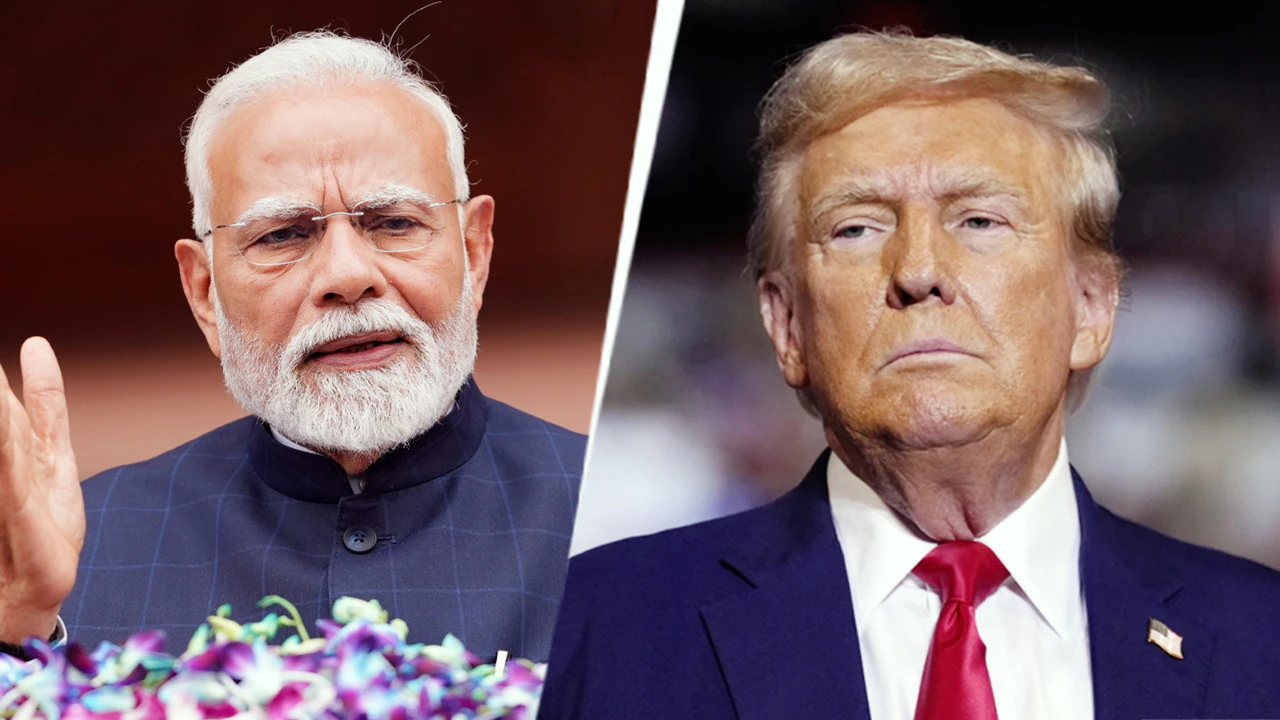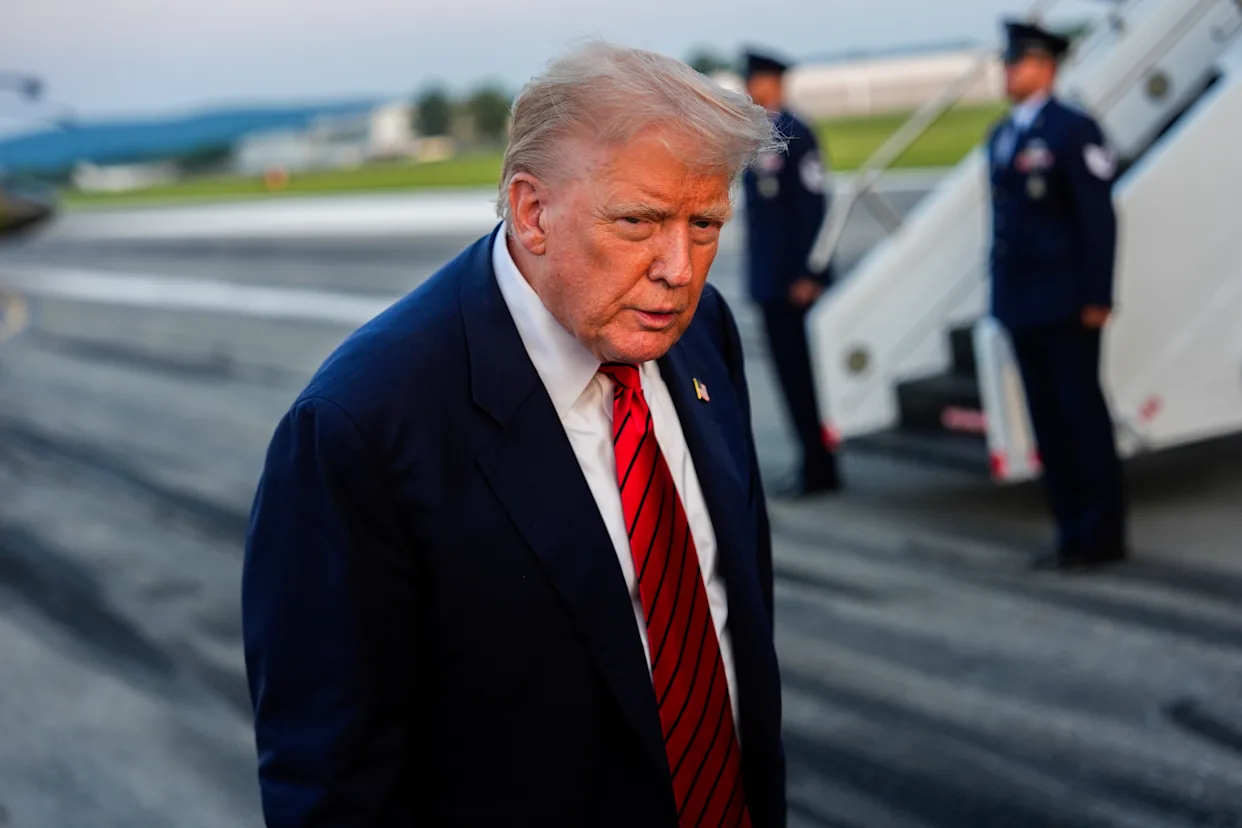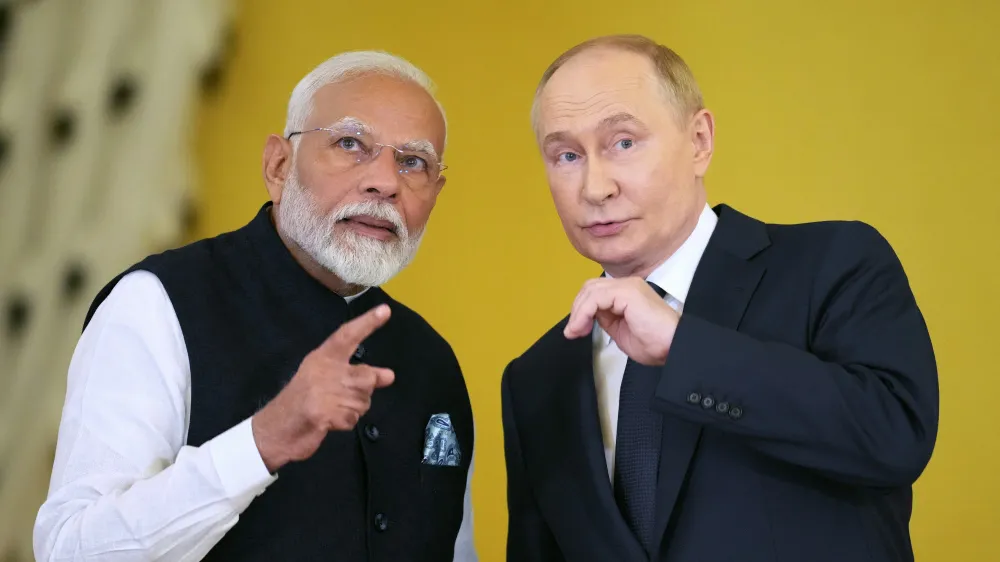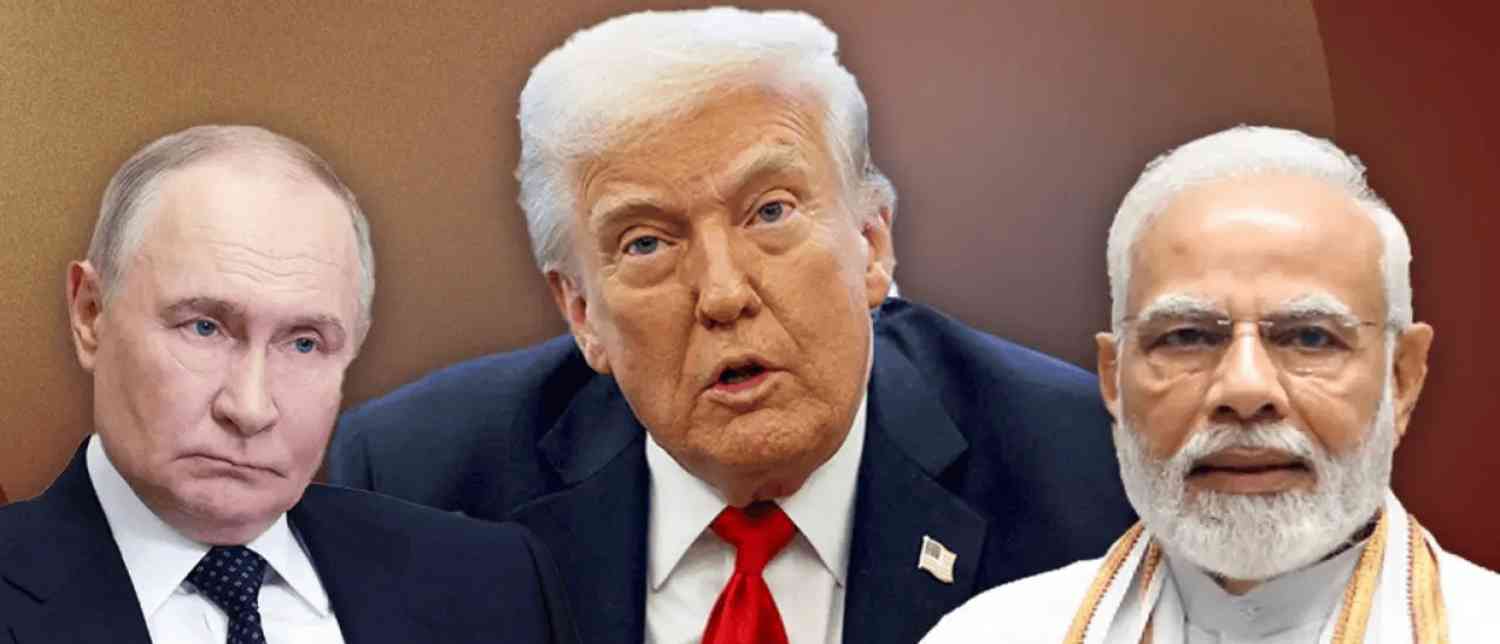In a dramatic turn of global diplomacy and trade tensions, India has delivered a powerful, unapologetic message to the United States and the European Union: New Delhi will protect its national interests—on its own terms. As Washington, under the leadership of President Donald Trump, ratchets up threats of punitive tariffs over India’s continued import of Russian oil, the Indian government has drawn a bold red line. Enough is enough.
Amid the intensifying geopolitical storm, India’s Ministry of External Affairs (MEA), backed by historical trade data, sharp diplomacy, and unwavering resolve, is dismantling what it calls the “hypocrisy” of the West.

The Tariff Threat: Trump's Accusations and India’s Retaliation
President Trump recently announced his intention to hike tariffs on Indian goods from 10% to 25%, starting August 7, 2025, accusing New Delhi of "funding the Russian war machine" by importing discounted Russian crude and reselling it for profit.
“India is not only buying massive amounts of Russian Oil, they are then, for much of the Oil purchased, selling it on the open market for big profits,” Trump posted on Truth Social.
He went further, accusing India of turning a blind eye to the humanitarian crisis in Ukraine, stating, “They don't care how many people in Ukraine are being killed.” Trump’s top advisor, Stephen Miller, echoed this stance, calling India’s energy strategy “unacceptable.”
The response from India was swift, firm, and factual. MEA spokesperson Randhir Jaiswal dismissed the accusations as “unjustified and unreasonable”, asserting India’s sovereign right to safeguard its economic and energy interests.
The Bigger Picture: Why India Turned to Russian Oil
India’s pivot toward Russian oil was not opportunistic, but strategic—driven by market realignment and economic necessity. When the Ukraine conflict erupted, traditional oil suppliers redirected shipments to Europe, leaving India with few alternatives.
“India began importing from Russia because traditional supplies were diverted to Europe,” said the MEA. “During that time, the US actively encouraged India’s imports from Russia to help maintain global market stability.”
What critics in the West overlook—or deliberately ignore—is that India's imports were never about profit, but about ensuring affordable energy for 1.4 billion citizens and keeping inflation in check. Today, Russian crude accounts for one-third of India’s total oil imports, playing a pivotal role in domestic energy security.
Statement by Official Spokesperson⬇️
🔗 https://t.co/O2hJTOZBby pic.twitter.com/RTQ2beJC0W— Randhir Jaiswal (@MEAIndia) August 4, 2025
Calling Out the West's Hypocrisy
India has publicly exposed the double standards of the United States and the European Union, both of whom continue to trade with Russia despite their public condemnation of Moscow.
-
The EU traded €67.5 billion worth of goods with Russia last year alone.
-
In 2024, the EU imported a record 16.5 million tonnes of Russian LNG, surpassing all previous years.
-
The U.S. continues importing uranium hexafluoride for its nuclear sector, palladium for electric vehicles, and other industrial goods from Russia.
As the MEA pointed out, this Western trade with Russia is not even driven by economic compulsion, unlike India's.
“It is revealing that the very nations criticizing India are themselves indulging in trade with Russia,” said Jaiswal.
India’s statement also noted ongoing trade in fertilizers, chemicals, mining products, iron and steel, machinery, and transport equipment between Russia and Western nations.
Russia Backs India: Accuses the U.S. of Neocolonialism
Russia’s Foreign Ministry didn’t hold back either. In a statement, spokesperson Maria Zakharova condemned the U.S. tariff spree, calling it a symptom of Washington’s “neocolonial agenda.”
“Unable to accept the erosion of its dominance in an emerging multipolar world, Washington is employing politically motivated economic pressure,” Zakharova said.
She highlighted that the U.S., once the self-declared champion of “free trade,” now imposes tariffs on 68 countries and the EU, with rates reaching up to 41%.
“No tariff wars or sanctions can halt the natural course of history,” Zakharova said defiantly, expressing Russia's readiness to cooperate more deeply with BRICS nations and other like-minded countries.

Beyond Oil: Rising U.S.-India Friction
The oil dispute comes amidst broader diplomatic strain between India and the Trump administration.
Earlier this year, Trump falsely claimed that he had brokered a ceasefire between India and Pakistan during a border flare-up—a claim India categorically denied in Parliament. This rare and public rebuttal marked a turning point in India's diplomatic tone, sending a clear message: India won’t tolerate political grandstanding or misinformation.
Further provoking India’s displeasure, Trump suggested that New Delhi could consider purchasing oil from arch-rival Pakistan, a notion seen in India as provocative and strategically tone-deaf.
These developments arrive at a delicate moment in U.S.-India relations, especially following years of negotiation over a now-stalled trade agreement.
No More Playing Nice: India Asserts Strategic Autonomy
Despite deepening its ties with the U.S. in areas such as technology, defense, and climate cooperation, India is unwilling to compromise on its foundational principle: strategic autonomy.
External Affairs Minister S. Jaishankar emphasized India’s stand:
“The world must work toward a fair global order, not one dominated by a few.”
Randhir Jaiswal reiterated that bilateral relationships are not to be viewed through the prism of third countries—a direct message to Washington.
New Delhi has made it clear that these energy agreements are long-term commitments that cannot and will not be dissolved overnight. In the first half of 2025, India imported about 1.75 million barrels of oil per day from Russia, marking a slight increase from the previous year.

A Defining Moment for India’s Global Posture
India’s response to U.S. tariff threats and criticism over Russian oil marks a watershed moment in its foreign policy. No longer content with quietly absorbing pressure from the West, India has stepped forward as a confident, self-assured global player—one that will not compromise its national interests or energy security.
This standoff reveals not just the friction between New Delhi and Washington, but also the shifting global order, where emerging economies like India demand respect, equality, and autonomy.
As the world watches, one thing is clear: India is not for sale, not for shame, and not for submission. It will act—always—in the best interest of its people, its economy, and its sovereignty.
With inputs from agencies
Image Source: Multiple agencies
© Copyright 2025. All Rights Reserved. Powered by Vygr Media.























